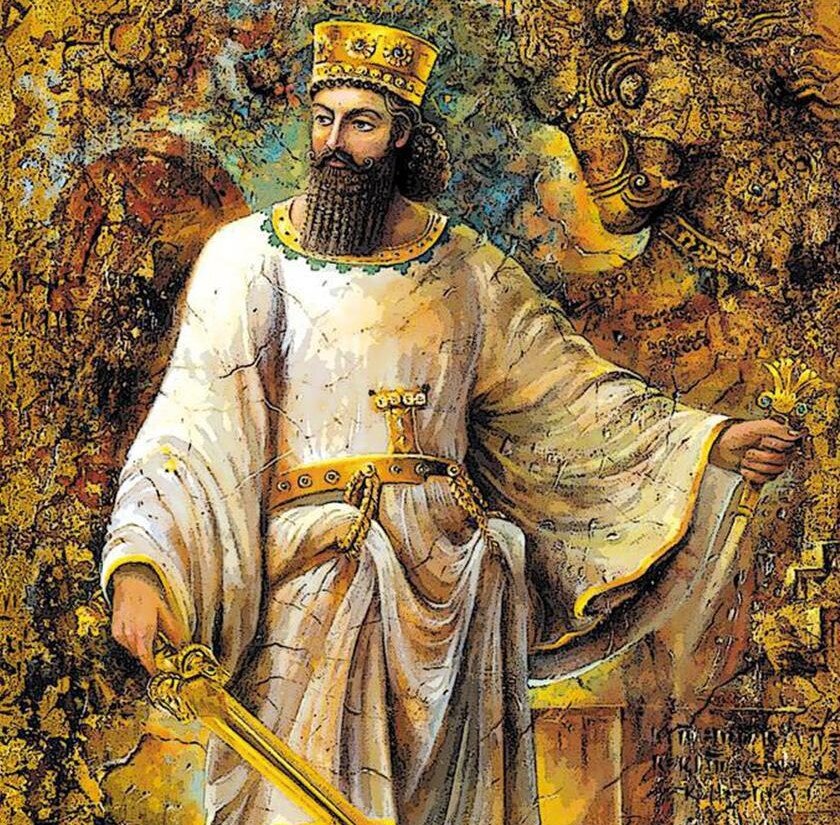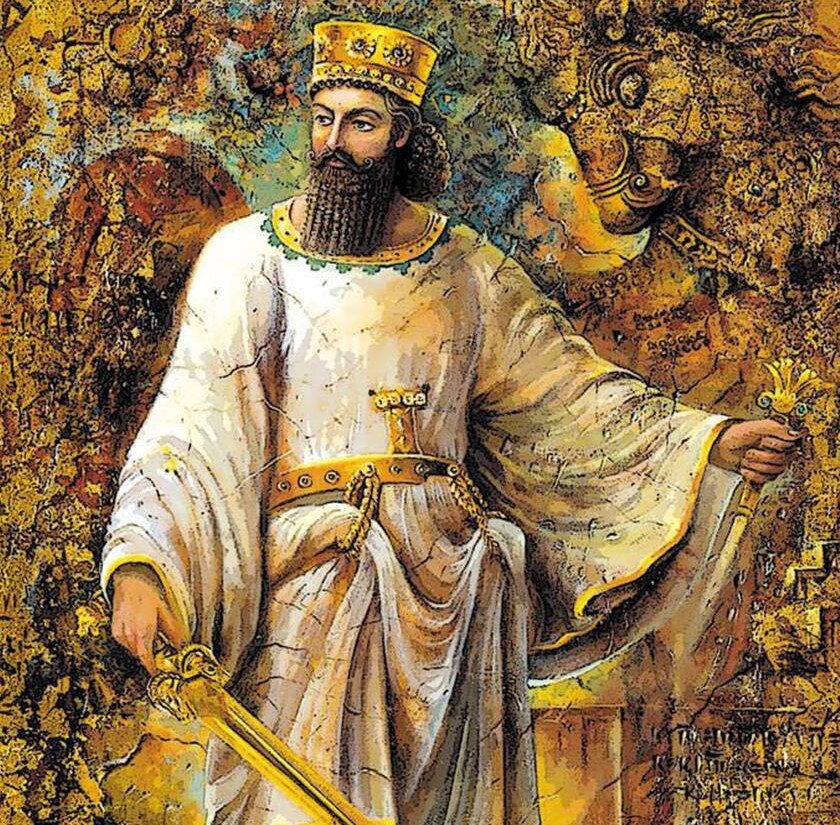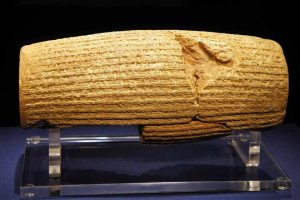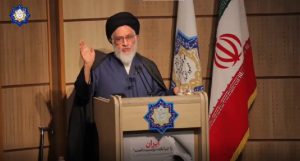
Farzan Asif Nakhaei: Perhaps the Achaemenid Empire is the first model of an Iranian nation – which has led to hundreds of years and has been successful at some point. But what kind of success is this success? Is it the result of a powerful central government, or is it the Iranians’ awakening and the product of its powerful central government? The answer to this question also clarifies the fate of Iran’s development. That is, why have other Iranian governments often failed to create a nation? Historical studies on the history of the Achaemenids, which is also the issue of Iran now, can be very valuable to the intellectual audience, and the owner.
In other words, what were the ethics and ethics of the Iranian people who were able to get such a huge empire out of their hearts? And what are the characteristics and ethics that failed to maintain their power and glory and lost it? These are questions that for today’s Iranians and the development of the country can be very contemplative and research for both the people and the academic elites.
Achaemenid civilization for Georg Wilhelm Friedrich Hegel
Georg Wilhelm Friedrich Hegel, the famous German philosopher, specifically calls the Achaemenid Empire as the “first true empire” and “the first outdated empire in history”. He also considers the Iranians the “first historical people” to establish the first empire. In the book “Lessons in the Philosophy of History”, Hegel details various civilizations and empires and gives a special place for the Iranian empire. His reasons for giving importance to Iran are:
Unity in the plurality: Unity in the plurality of contemporary Iran is very different from what Hegel is about the Achaemenid Empire. Unity in the plurality of contemporary Iranian history is more of a cultural and intellectual handmade, the last of which was followed by a project of uniformity by year 2. This is while Hegel believes that the Iranian empire for the first time was able to bring together different nations and nations with different cultures and traditions under a single government, allowing them to maintain their identity and characteristics. He considers this kind of government a “complete government” that consists of heterogeneous elements but maintains its unity in the light of unique sovereignty. He considers this attribute as an important step in human political evolution, compared to other empires.
The beginning of history in the true sense: For Hegel, history begins with the Iranian Empire in the literal sense, that is, the existence of historical consciousness and the movement of freedom. He believes that before Iran, civilizations were more in a natural and static state and had no real dynamics and transformation. The Iranians provided the basis for the development and evolution of the global spirit by creating a vast empire and communicating between different cultures.
Role of Zoroastrianism: Hegel refers to the role of Zoroastrianism in the Iranian Empire and considers it as the first religion to present the concept of light and light as a symbol of consciousness and spirit. He believes that this view has been an important step towards understanding the concept of spirit and freedom. He describes the light of Zoroastrianism as “the Foroughi who shines and illuminates his surroundings” and considers it to belong to the “world of consciousness” and “soul”.
Transfer from east to west: Hegel believes that the Iranian empire played an important role in the transmission of civilization and culture from east to west. He says that while China and India remained inaccurate, the Iranians represented the true transfer of history from east to west. However, Hegel emphasizes its historical importance as the first real example of a large and multinational empire, pointing out that the Iranian empire has disappeared.
Cyrus the Great, the founder of the Achaemenid Persian Imperial, from 1 to 2 BC. He reigned. He was one of the people who changed the history of the world and different personality for different people: for the early Persians and the Elamites of Cyrus was an exceptional leadership that brought them into the world, a world that extended from Central Asia to Anatolia and its beyond; A person who changed their lives completely, both in appearance and in practice. For the ancient Babylonians, Cyrus reached the height of Hammurabi, and although it was foreigner, he was fully in line with their traditions.
For ancient Hebrews, Cyrus was a fundamental personality in their freedom from the Babylonian domination, so that he was actually called his savior. Cyrus helped them to the Temple of Solomon [نبی] Build again and began a period that is called the “Second Temple” today. For Greek and Roman writers, Cyrus was an ideal ruler who had gathered the top features of leadership and genius, but at the same time he could be a powerless, decisive and powerful military commander. In recent times, such superiority features have been attributed to Cyrus, and for many people, he is still a symbol of patriotism that has greeted the first period of Iranian history.
«King of the World; Cyrus the Great Life »at the Exhibition
Hegel’s view doubles the necessity of studying the Achaemenid civilization and Cyrus’ life, for Iranians who have short -term thinking, and inability to cooperate. These studies can refer to the causes of the ascension and fall of the Achaemenid civilization. Perhaps the book “King of the World; The Life of Cyrus the Great »by Mattar Waters, translated by Mohammad Reza Jafari and Nahid Salami, which can help in this field in the thirty -sixth International Book Fair. Matt Waters is a system of system at the University of Wisconsin and a professor of classics and ancient history at the University of Wisconsin-Volker.
He has received his doctorate in ancient history (Near East and Greece) from the University of Pennsylvania. His main research interests are the Achaemenid history and Greek historiography. He won the Greenfield Award from the US Eastern Association in 2008, as well as scholarships from the US Council of Research Associations, the Harvard University Studies Center, and the Classic Lob Library Foundation. His recent published works include numerous articles on the various aspects of the first millennium BC, especially the relations between Greece and Iran. Other works underway include an study of the Achaemenid history of Iran (Cambridge University Publications).
Politics and Governance
One of the reasons for the rise of civilization in this period of Iranian life is to pay attention to the policies of the kings’ governance and what each of them was pursuing at that historical level. One of the prominent aspects of Cyrus’ personality was his policy of tolerance and respect for different cultures and religions. After the conquest of Babylon, he issued the Cyrus Charter, which is recognized as the first human rights lecture. In this charter, Cyrus guaranteed religious freedom for the people of Babylon and allowed exile Jews to return to their land and rebuild their temple. This action sparked a lot of admiration, including in the Jewish Bible. Both the studies of Matthews and other historians of ancient empires have often confirmed these traits of governance in the Cyrus Empire.
This is particularly contemplative from a structural perspective. Because without such an approach, that structure of the nation -based nation based on cultural color could not emerge. Cyrus’ government policies were based on justice, respect for local traditions, and the lack of imposition of their culture and religion on the people of conquest. He tried to work with local leaders and maintain them in the affairs of his areas. This approach contributed to the stability and integrity of his vast empire. Cyrus the Great was an exceptional personality in the history of the world that, with the wise leadership, widespread conquests, and humanitarian policies, established a powerful empire and left a valuable legacy for the future. The study of his life opens a door to understanding Iranian ancient civilization and its impact on the world. Accordingly, Cyrus’s legacy, which is very broad and sometimes lasting, can be mentioned as follows:
- Establishment of the Achaemenid Empire: He founded the largest empire until then, which ruled a large part of the world for more than two centuries.
- Policy tolerance and respect for human rights: The Cyrus Charter is recognized as a symbol of religious tolerance and respect for the rights of different ethnicities and has had a profound impact on subsequent human rights thinking.
- Governance pattern: Cyrus’ fair and fair approach to rule made him a model for many of the next leaders.
- Position in Iranian Culture: Cyrus has a special place in Iranian culture and identity and is known as a symbol of honor, justice and wisdom.
The causes of the fall of the Achaemenid civilization
The fall of the Achaemenids in the year BC was the result of complex factors. In short, the most important reasons are the Alexander the Macedonian invasion, which, although true, is not sufficient for the fall of a great empire such as the Achaemenid empire.
In essence, the political philosophers of the defeat of Iranian forces, including the Battle of Granicos (2 BC), the Battle of Asus (2 BC), and the Battle of Gogal (2 BC), from Alexander the Great, and the occupation of important cities of the empire, including Babylon, Susa, and Susa, Empires. The detailed description of Alexander’s invasion of Iran is included in the works of Greek historians such as Anabasis Alexandri, Bibliotheca Historica, Historiae Alexandri Magni, and Parallel Lives. But what is important is important details of the structural weakness and internal problems before Alexander’s invasion, which were found in the Achaemenid Empire:
For example, from Cyrus I to Darius III, the depreciation of social capital, both in political sovereignty, has increased. This has led to the issue of succession and power transfer slowly and threaten the internal conflicts to reach the throne of the empire. In terms of national cohesion, the dissatisfaction of the satraps, and the increase in their power, had created a tendency for autonomy that led to uprisings in various parts of the empire. In addition, and, most importantly, economic pressure and heavy taxes, due to the high costs of wars and luxurious courts, had increased economic pressure on the public and could lead to public discontent.
Evidence of these problems in modern historical analysis emphasizes the role of these factors in the weakening of the Alexander Empire before Alexander’s invasion, for example this important issue in Pierre Brian’s works. Pierre Brian (born September 9, 2008 in Angie, France) is a prominent and specialist in ancient Iranian history, especially the Achaemenid period, as well as the Alexander Empire of the Macedonian and Hellenistic era. He was a retired professor of the Achaemenid world history and civilization and the Empire of Alexander the Great in the Collège de France in Paris.
For Pierre Brian, although the Achaemenids had pursued a tolerance policy, there were discontent in some areas that Alexander could benefit from. For example, in Egypt and Babylon, the memories of previous independence were still alive. Full cohesion among Iranian elites can also be a factor. Some aristocrats may not support Darius III for various reasons. The important point from Brian’s view is that Brian does not believe that the Achaemenid Empire was necessarily collapsing at the time of Alexander’s invasion. He emphasizes that the empire still had significant resources and power and showed significant resistance to Alexander. However, a combination of the factors mentioned above, along with Alexander’s military genius and his coherent and efficient army, eventually led to the Achaemenid defeat. Instead of focusing on internal weaknesses, Brian emphasizes the interaction of these weaknesses with the attacker’s strength and strategy, and, of course, shows that the external force is always looking to create a gap in the opposite forces.
For example, for example, for example, a weakness in the military response to the new threat, which led to Alexander’s and Macedonian army’s power and goals, because the Achaemenid army was accustomed to dealing with threats by the Greek government-cities, as well as a united and organized force under the leadership of a military commander. Factors such as insufficient familiarity with Macedonian tactics and Alexander’s military leadership were involved in these failures and the fall of the Achaemenids.
Read more:
The fundamental distinction between two types of reform in Iran / A view of Iran’s liberation from the political trap / women in what ways have practically chosen for liberation?
What is the criteria for distinguishing the part of the Polar and the Reform Front / “Survival Genius” or “Determination Madness” in Iran? / Radicals of the two sides in the political trap
How did they kill a thinker with a book/ We are on the verge of a civilization crisis/ Where is the main and dangerous clash with the people?
1
منبع: www.khabaronline.ir




